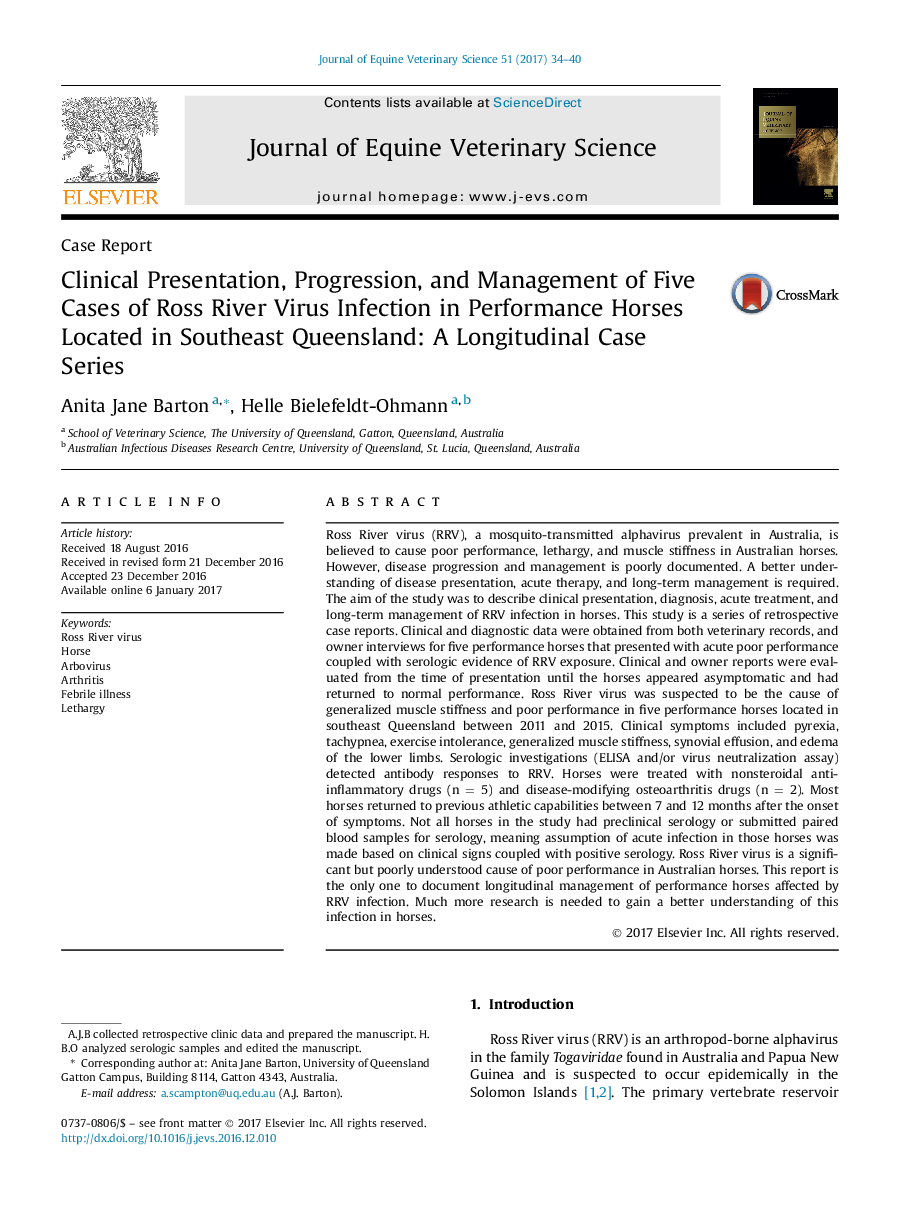| کد مقاله | کد نشریه | سال انتشار | مقاله انگلیسی | نسخه تمام متن |
|---|---|---|---|---|
| 5535439 | 1551549 | 2017 | 7 صفحه PDF | دانلود رایگان |
- Ross River virus is an arthritogenic mosquito-borne alphavirus endemic to Australia and Papua New Guinea.
- The virus causes debilitating disease in horses and humans known as Ross River fever, characterized by joint pain, fatigue, and fever that can last up to a year.
- Ross River fever in horses is poorly understood and often underdiagnosed.
- Management of Ross River fever in horses and humans is symptomatic and based more on anecdotal reports rather than evidence-based medicine.
Ross River virus (RRV), a mosquito-transmitted alphavirus prevalent in Australia, is believed to cause poor performance, lethargy, and muscle stiffness in Australian horses. However, disease progression and management is poorly documented. A better understanding of disease presentation, acute therapy, and long-term management is required. The aim of the study was to describe clinical presentation, diagnosis, acute treatment, and long-term management of RRV infection in horses. This study is a series of retrospective case reports. Clinical and diagnostic data were obtained from both veterinary records, and owner interviews for five performance horses that presented with acute poor performance coupled with serologic evidence of RRV exposure. Clinical and owner reports were evaluated from the time of presentation until the horses appeared asymptomatic and had returned to normal performance. Ross River virus was suspected to be the cause of generalized muscle stiffness and poor performance in five performance horses located in southeast Queensland between 2011 and 2015. Clinical symptoms included pyrexia, tachypnea, exercise intolerance, generalized muscle stiffness, synovial effusion, and edema of the lower limbs. Serologic investigations (ELISA and/or virus neutralization assay) detected antibody responses to RRV. Horses were treated with nonsteroidal anti-inflammatory drugs (n = 5) and disease-modifying osteoarthritis drugs (n = 2). Most horses returned to previous athletic capabilities between 7 and 12Â months after the onset of symptoms. Not all horses in the study had preclinical serology or submitted paired blood samples for serology, meaning assumption of acute infection in those horses was made based on clinical signs coupled with positive serology. Ross River virus is a significant but poorly understood cause of poor performance in Australian horses. This report is the only one to document longitudinal management of performance horses affected by RRV infection. Much more research is needed to gain a better understanding of this infection in horses.
Journal: Journal of Equine Veterinary Science - Volume 51, April 2017, Pages 34-40
